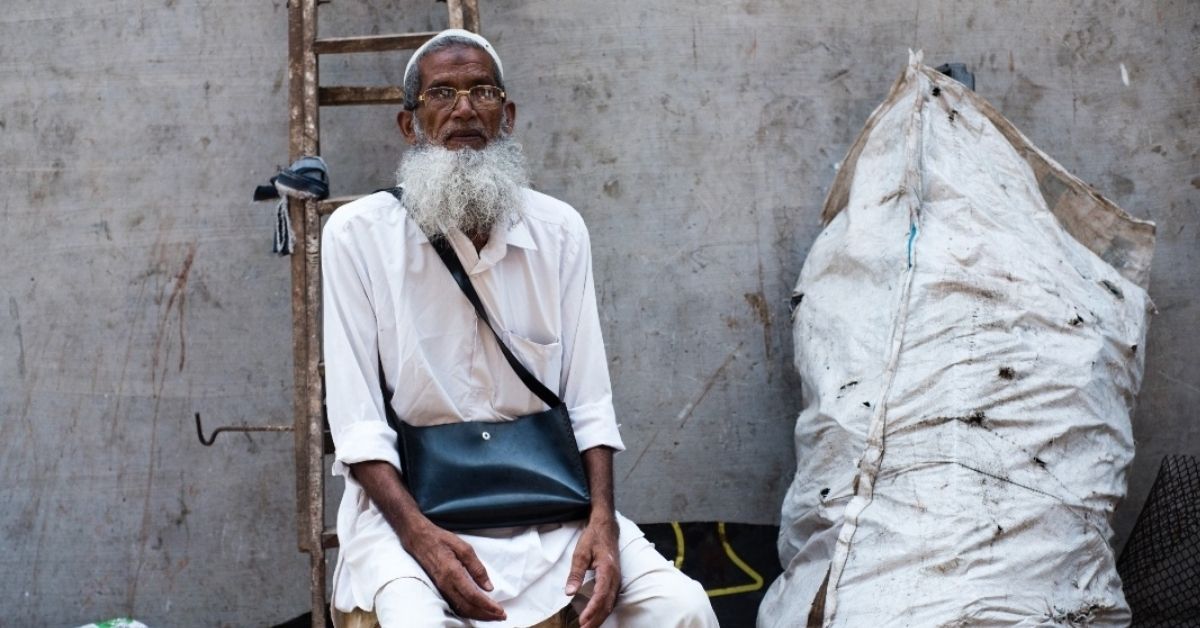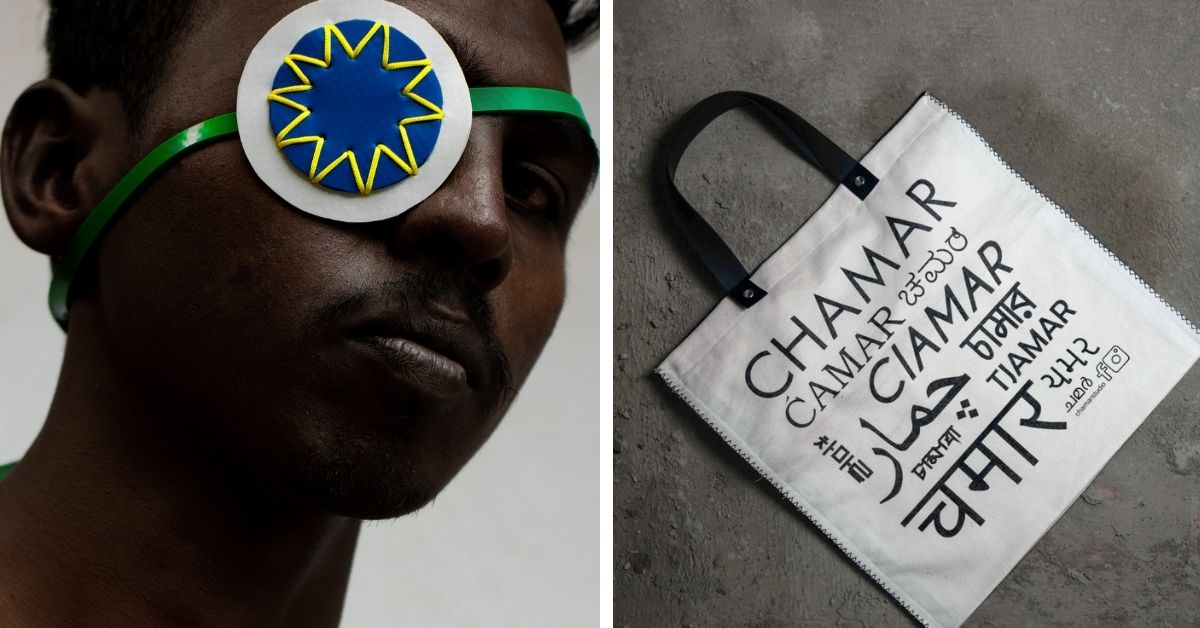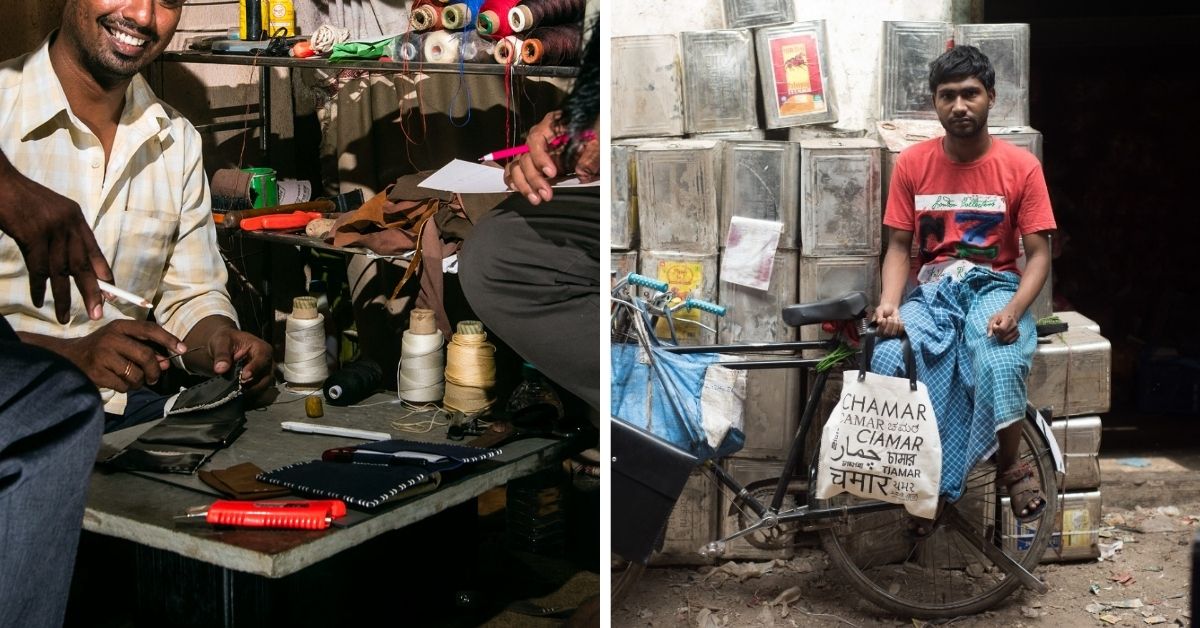For Holi, Sudheer Rajbhar was in a small village in Rajasthan this year. As we connect over call, he tells me that two celebrations ran parallel on the day of love, colour, and unity — one of the Brahmins and one of the Dalits. “I was surprised to see how, even now, they won’t play Holi with us,” he notes.
Presumably, the rest of the country had similar Holi celebrations, with a clear divide between different stratas of society. Those who are privy to the problem of caste in India are mostly the ones who experience the turmoils first hand, and those who think it no longer exists are people who have perhaps never directly faced violent discrimanation based on their identity.
As a member of the Bhar community, Rajbhar has seen how his identity shaped people’s perception of him since childhood. He grew up in the slums of Mumbai, and whenever he visited his hometown in Uttar Pradesh, he’d be subject to derogatory and abusive remarks and slurs, including ‘chamar’. “They’d use the word to call me lousy, and then laugh,” he recalls in a conversation with The Better India.

Using a casteist slur as an instrument of change
Rajbhar had grown up with dreams of becoming an artist. “I studied Fine Arts in Mumbai, and got the opportunity to work under a few established artists,” he says. However, he’d often find that he wasn’t given credit for his work. As part of one project, he decided to curate a show wherein he involved local artisans of the community. The project was called, ‘We Are Here Because You Are There’, and it was his first brush with talking about his struggles with caste through art.
Meanwhile, in 2015, the government called for a ‘beef ban’, which hit the Dalit community the hardest. In Dharavi, the once thriving community of leather artisans were now facing an alarming stoppage in their daily livelihoods. Facing acute shortages of raw material, several units shut down and hundreds were rendered jobless. Moreover, with Maharashtra being a major supplier of good quality raw material, tanneries and manufacturing units all over India felt the hit. Raw material became increasingly expensive and difficult to access.
Rajbhar stepped in to make a medium that could help leather artisans in Dharavi. In 2017, he opened the Chamar Studio, wherein he aimed to restore the livelihoods of the artisans by replacing leather products with recycled rubber. Chamar Studio sells a vast variety of carefully crafted and minimalist bags, wallets, belts, and other such products. The studio makes designer products that are affordable, so while the most expensive ones are priced as high as Rs 39,000, the lowest start from Rs 1,500. Around 50% of the earnings through these products go back to the artisans and Rajbhar’s foundation, The Chamar Foundation.

More than just establishing competition with similar brands, the idea of the studio was to use a casteist slur as an instrument of change and empowerment. To see the insult boldly printed across stylish accessories is bound to initiate conversation and draw in a sense of connect with the community, Rajbhar says. Why should a community that is so skilled—with its products being so integral to the Indian economy—be subject to such gory discrimination?
Around 10 artisans are employed with Chamar Studio. A major challenge in recruitment was the initial reaction to the name of his studio. “Then I’d explain to them what this new medium, rubber, was and how they would work with it. I told them it was just a matter of stitching, which made their work a lot easier. They did so by setting up small work spaces in their homes,” he says, adding that those involved in this venture include cobblers, shoe shiners and craftsmen.

Getting credit where it’s due
Rahul Gore from Dharavi is one such artisan with the studio. He comes from a family that has been in the business of leather products for years. “My father was what you would call the perfect craftsman. He was my inspiration to get into the business as well. I bought a small space to start my own unit, and it was growing well. Sudheer ji approached me and proposed that we work together. I’ll admit that I didn’t take them seriously at first, especially when he told me about the recycled angle. However, once business started suffering, we had another meeting in which he explained the concept in depth,” Gore tells The Better India.
“I was surprised when he first mentioned the name of the venture,” Gore admits, adding, “While I belong to the Chamar community, it was hard for me to digest the name of the brand. Moreover, the company wasn’t even using chamadi (leather) to make the products. But Sudheer ji explained how this was a way for us to claim our identity. I then started taking it more seriously. He told me about his journey, what exactly he wanted to do and the mark he wanted to make.”
Gore says working in the studio gives him the sense of helping his own community grow. “After the beef ban, we were definitely affected, especially those working in tanneries. After working with the studio, I started getting regular work, which improved my livelihood,” he adds. Gore has worked on every type of product that the studio has put out so far. “Artisans of our community deserve the credit they receive, which the studio has made possible. Sudheer ji has helped artists gain their rightful recognition, which is why I’m glad to be part of the company,” he adds.”

Rajbhar says the focus is on ensuring that the artisans get the due for their hard work. Through the Chamar Foundation, he further promotes the community and their work, and helps them gain better access to raw material and tools. “I also want them to learn how to make clean products and get their fair amount.When people hear of these fair practices, I think they connect with our brand more,” Rajbhar says. Chamar Studio has 8 to 10 designs, and Rajbhar says he is still growing accustomed to the changing tastes of the customer. “All designs have done well so far,” he adds. These products have travelled all over the world, including Frankfurt, Germany.
What makes the products unique, says Rajbhar, are their contemporary design. The idea is to keep up with new trends, while conforming with eco-friendly practices, by recycling inner tubes. “The most unique is the name, of course,” he laughs.

In terms of funding, Rajbhar says he has sustained the venture from his own savings and did not receive much help from the government or CSR projects. “Things are difficult. COVID-19 has definitely played a role. But we try to stay afloat,” he admits, “If you’re not stepping outside your home, you can’t come and see the product. Regardless, people have offered their support by purchasing Chamar bags and helping us out.”
On whether things have changed over the years, Rajbhar highlights his own struggles with caste and class, and admits the problem still very much persists. Recalling the days of his assistantship, he says, “During my days of studying Fine Arts, which is considered quite elite, I moved up and down galleries and people would judge me on my spoken English and the way I was dressed. They don’t just see the art, they also see you. Herein lies the problem of class, even in a city as big as Bombay,” he says.
For more information, or to support Rajbhar’s cause, you can visit Chamar Studio’s website. You can also follow them on Instagram.
Edited by Yoshita Rao
No comments:
Post a Comment